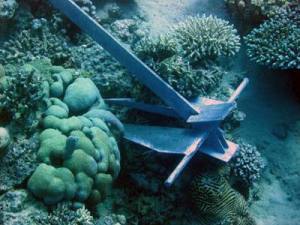Issue:
Sediment is often displaced after local development. Sediment comes down to the coral reefs after large storms, moving such materials as fertilizer, dirt, and anything else that is loose, on top of the soil, and pushing it on top of the coral, suffocating it. Because the zooxanthellae on the coral uses photosynthesis to survive, when they get buried, they die. Without the zooxanthellae, the corals survive on reserves. Because corals are animals, they will use all of their reserve food sources, and die. Without the coral, the fish will either die or leave because all their food sources will be gone. All that will be left will be a coral wasteland.
Because the zooxanthellae on the coral uses photosynthesis to survive, when they get buried, they die. Without the zooxanthellae, the corals survive on reserves. Because corals are animals, they will use all of their reserve food sources, and die. Without the coral, the fish will either die or leave because all their food sources will be gone. All that will be left will be a coral wasteland.
Facts:
The zooxanthellae are what provide color to the coral, and is what attracts tourists from all around the world to visit places such as the British Virgin Islands and support the local economy. Coral Reefs support 25% of all oceanic life, so if the corals die, many of our
Solution:
Help with beach clean ups! Anything that is left on the beach will wash into the ocean and kill the coral and local animals.
 Don’t use harmful chemicals! Use biodegradable shampoo and conditioner, Everything that goes into the water will eventually turn up in the ocean and, therefore coral reefs. Suave Naturals has a brand of natural biodegradable shampoo and conditioners.
Don’t use harmful chemicals! Use biodegradable shampoo and conditioner, Everything that goes into the water will eventually turn up in the ocean and, therefore coral reefs. Suave Naturals has a brand of natural biodegradable shampoo and conditioners.
 When people drop anchors off shore to go scuba diving, the anchors fall and destroy the coral when they land. That little bit of coral is destroyed instantly, but with the current, the anchor will drag and destroy coral for a long way. It makes it very difficult to remove your anchor to because the anchor becomes caught under the coral, which makes it dangerous to yourselves if you try to leave.
When people drop anchors off shore to go scuba diving, the anchors fall and destroy the coral when they land. That little bit of coral is destroyed instantly, but with the current, the anchor will drag and destroy coral for a long way. It makes it very difficult to remove your anchor to because the anchor becomes caught under the coral, which makes it dangerous to yourselves if you try to leave.




